
Kigoma: The Hidden Jewel of Tanzania
Nestled on the eastern shores of Lake Tanganyika, Kigoma is a city that offers a unique blend of natural beauty and rich history. This serene destination is often overlooked by mainstream tourists, making it a perfect spot for those seeking an off-the-beaten-path adventure. Kigoma is known for its stunning lake views and pristine beaches. Lake Tanganyika, the second deepest lake in the world, is a haven for water sports enthusiasts and nature lovers alike. The crystal-clear waters are perfect for snorkeling, diving, and fishing. For those who prefer to stay on land, the lakeside offers scenic spots ideal for picnicking and relaxing. The city also boasts a rich cultural heritage. Kigoma is a melting pot of various ethnic groups, and this diversity is reflected in its vibrant markets, delicious cuisine, and traditional music. A visit to the local markets is a must, where you can find everything from fresh produce to handmade crafts. Don’t miss the chance to sample local dishes like grilled fish from the lake, served with a side of plantains or rice. Kigoma serves as a gateway to the famous Gombe Stream National Park, home to the chimpanzees studied by Jane Goodall. A short boat ride from the city will take you to this lush park, where you can trek through the forest and observe these fascinating primates in their natural habitat. It's an experience that promises to be both educational and awe-inspiring. Despite its many attractions, Kigoma retains a laid-back, welcoming atmosphere. The locals are friendly and eager to share their city with visitors. Whether you're exploring the lake, diving into the local culture, or embarking on a wildlife adventure, Kigoma promises a memorable and enriching travel experience.
Local tips in Kigoma
- Visit the local markets early in the morning for the freshest produce and best selection of handmade crafts.
- Hire a local guide for a more informative and enriching experience at Gombe Stream National Park.
- Try the local grilled fish from Lake Tanganyika – it’s a delicacy you shouldn’t miss.
- If planning to snorkel or dive, bring your equipment as rental options may be limited.
- Carry local currency, as not all vendors and establishments accept credit cards.
Kigoma: The Hidden Jewel of Tanzania
Nestled on the eastern shores of Lake Tanganyika, Kigoma is a city that offers a unique blend of natural beauty and rich history. This serene destination is often overlooked by mainstream tourists, making it a perfect spot for those seeking an off-the-beaten-path adventure. Kigoma is known for its stunning lake views and pristine beaches. Lake Tanganyika, the second deepest lake in the world, is a haven for water sports enthusiasts and nature lovers alike. The crystal-clear waters are perfect for snorkeling, diving, and fishing. For those who prefer to stay on land, the lakeside offers scenic spots ideal for picnicking and relaxing. The city also boasts a rich cultural heritage. Kigoma is a melting pot of various ethnic groups, and this diversity is reflected in its vibrant markets, delicious cuisine, and traditional music. A visit to the local markets is a must, where you can find everything from fresh produce to handmade crafts. Don’t miss the chance to sample local dishes like grilled fish from the lake, served with a side of plantains or rice. Kigoma serves as a gateway to the famous Gombe Stream National Park, home to the chimpanzees studied by Jane Goodall. A short boat ride from the city will take you to this lush park, where you can trek through the forest and observe these fascinating primates in their natural habitat. It's an experience that promises to be both educational and awe-inspiring. Despite its many attractions, Kigoma retains a laid-back, welcoming atmosphere. The locals are friendly and eager to share their city with visitors. Whether you're exploring the lake, diving into the local culture, or embarking on a wildlife adventure, Kigoma promises a memorable and enriching travel experience.
When is the best time to go to Kigoma?
Iconic landmarks you can’t miss
Kigoma Hilltop Hotel
Experience breathtaking views and local culture at Kigoma Hilltop Hotel, your serene oasis in Kigoma, Tanzania.
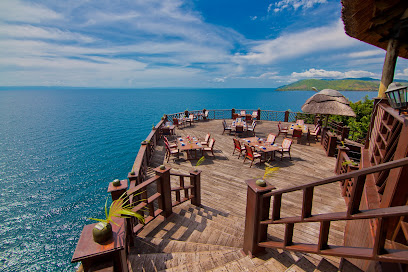
Mahale Classic Lodge
Discover the serene beauty of Mahale Classic Lodge in Kigoma, Tanzania, where comfort meets nature and adventure awaits.

Jakobsen Beach and Guest House
Discover the serene beauty of Jakobsen Beach and Guest House, a perfect retreat by Lake Tanganyika, where relaxation meets adventure in Kigoma, Tanzania.
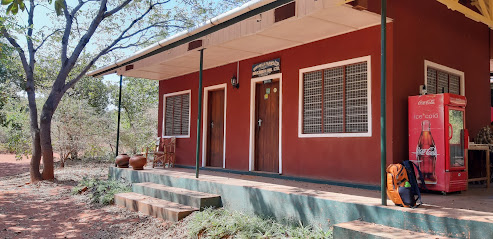
Livingstone Museum
Explore the Livingstone Museum in Kigoma, where Tanzania's rich history and culture come alive through captivating exhibits and artifacts.
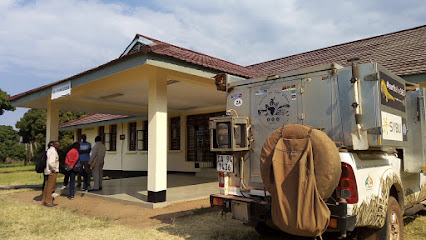
Dr. Livingstone memorial
Discover the Dr. Livingstone Memorial in Kigoma - a remarkable historical landmark honoring exploration and adventure amidst breathtaking scenery.
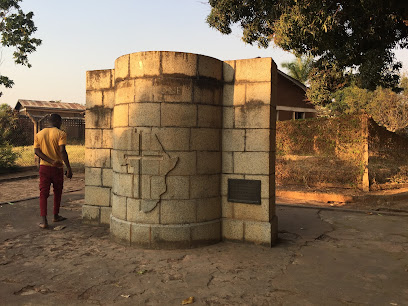
Kigoma Eco-Cultural Tourism
Experience the beauty and culture of Kigoma, Tanzania with eco-friendly tours that connect you to nature and local communities.
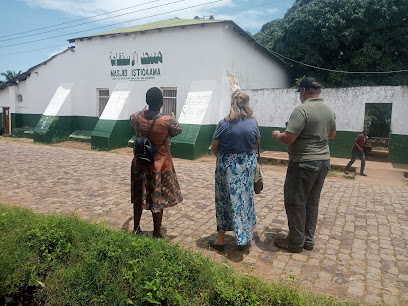
Unique Bar
Discover Unique Bar in Kigoma, where authentic Tanzanian flavors meet a vibrant atmosphere for an unforgettable dining experience.
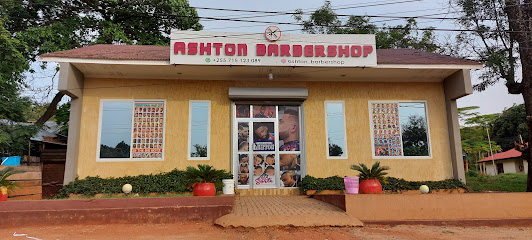
Kigoma port
Discover the vibrant Kigoma Port, your gateway to Lake Tanganyika's stunning landscapes and rich wildlife experiences in Tanzania.
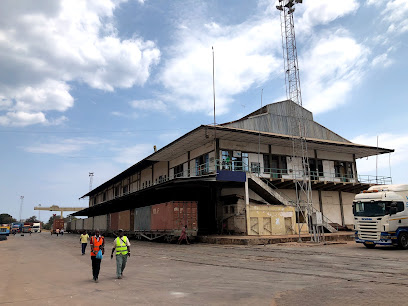
Gombe Wild Chimp Safari
Discover the wonders of Gombe Wild Chimp Safari, where adventure meets nature in the heart of Tanzania's breathtaking landscapes.
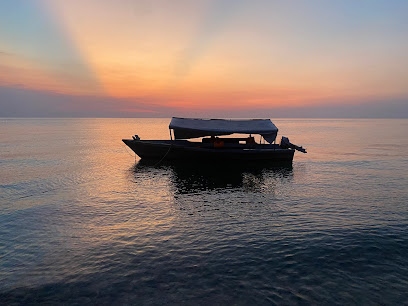
Kigoma tours
Explore the stunning landscapes of Tanzania with Kigoma Tours, your gateway to unforgettable adventures and cultural experiences.

Unmissable attractions to see
Gombe National Park
Discover Gombe National Park, a sanctuary for chimpanzees and a paradise for nature lovers, nestled by the scenic shores of Lake Tanganyika.
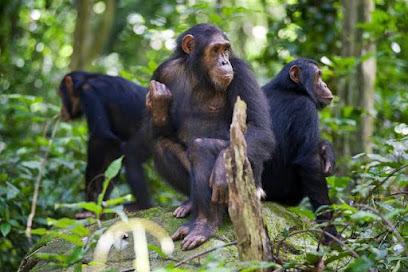
Gombe National Park
Explore Gombe National Park, a pristine wilderness in Tanzania, famous for its chimpanzees and stunning landscapes along Lake Tanganyika.
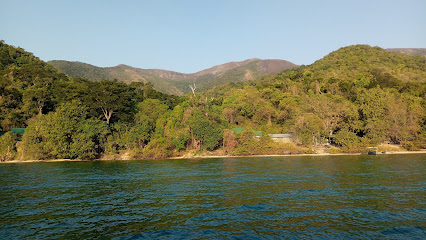
Soko Marungu
Experience the vibrant culture and flavors of Kigoma at Soko Marungu, a must-visit night market filled with local delicacies and crafts.
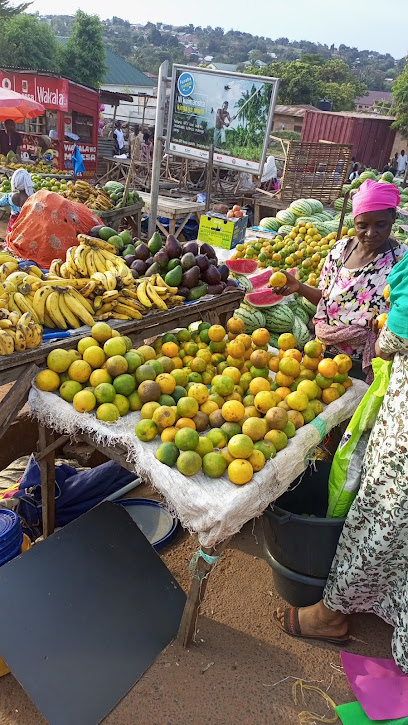
Livingstone Museum
Discover the treasures of Tanzania's past at Livingstone Museum, a historical gem in Kigoma that showcases rich cultural artifacts and stories.
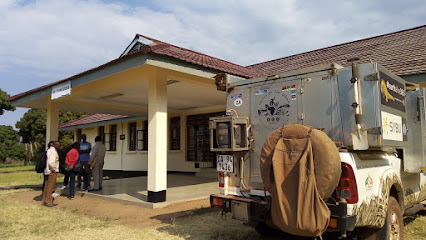
Dr. Livingstone memorial
Discover the legacy of Dr. David Livingstone at the Dr. Livingstone Memorial, a historical landmark in Kigoma, Tanzania, rich in exploration history.
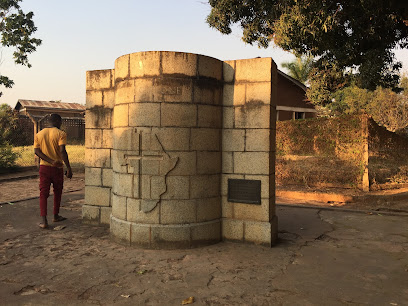
Mbali Mbali Gombe Lodge
Experience the breathtaking beauty and tranquility of Mbali Mbali Gombe Lodge in North Gombe National Park, a unique blend of luxury and nature.

Mwanga Roundabout
Experience the vibrant culture and scenic beauty of Mwanga Roundabout in Kigoma, Tanzania, a perfect starting point for your travel adventures.
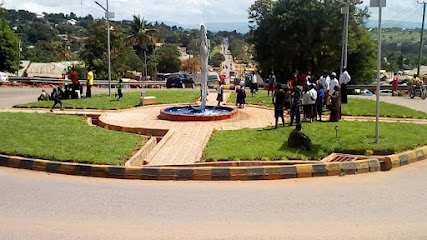
Kakombe Waterfall
Explore the stunning Kakombe Waterfall, a hidden gem in Kasekera, offering breathtaking views and serene natural beauty for all nature enthusiasts.

Kakombe Waterfall
Experience the natural beauty of Kakombe Waterfall in Kasekera, Tanzania, a serene escape perfect for nature lovers and adventure seekers.
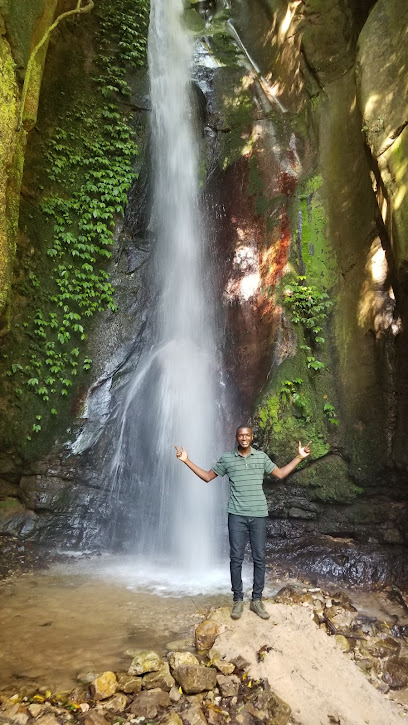
Mlole Hill
Discover the stunning trails and breathtaking views at Mlole Hill, a premier hiking destination in Kigoma, Tanzania, perfect for nature lovers and adventure seekers.
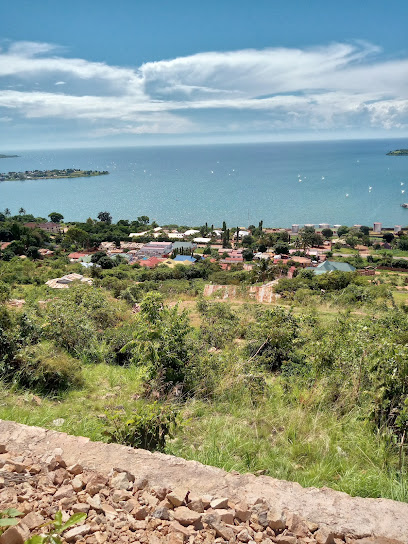
Kitwa Forest
Explore the serene beauty of Kitwa Forest, a tranquil oasis in Tanzania perfect for nature lovers and adventure seekers alike.
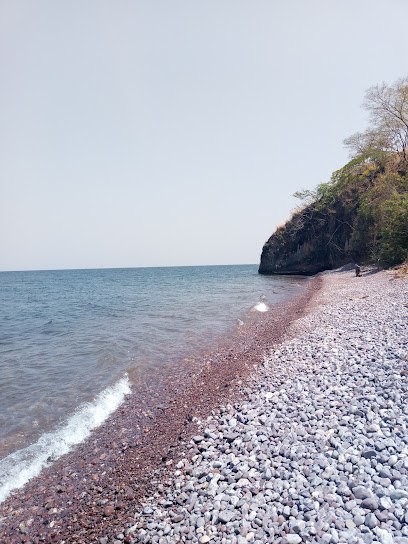
Deca shamba
Discover the serene beauty and cultural richness of Deca Shamba, a hidden gem in Kigoma, Tanzania, perfect for nature lovers and cultural explorers.

Jodec liquor point
Experience the vibrant culture of Kigoma at Jodec Liquor Point, where local flavors and friendly faces await you.

Gombe Site
Explore Gombe National Park, home to wild chimpanzees, lush landscapes, and stunning views of Lake Tanganyika for an unforgettable adventure in Tanzania.

Essential places to dine
Akemi Revolving Restaurant
Discover breathtaking views and exquisite flavors at Akemi Revolving Restaurant in Dar es Salaam's Golden Jubilee Towers.
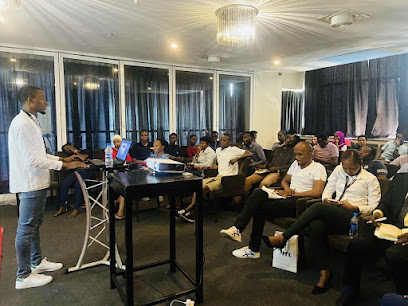
Lake Tanganyika Hotel
Discover serene lakeside living at Lake Tanganyika Hotel, where comfort meets nature's splendor amidst Tanzania's breathtaking landscapes.

Kigoma Hilltop Hotel
Discover unparalleled views and authentic Tanzanian experiences at Kigoma Hilltop Hotel – your perfect getaway by Lake Tanganyika.
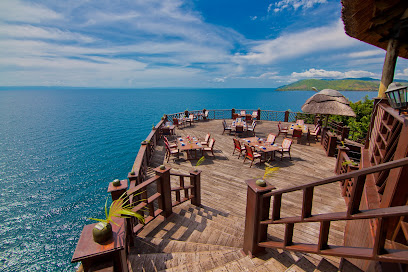
Saidi Mazana
Experience authentic Tanzanian cuisine at Saidi Mazana in Kigoma - where flavor meets culture in every bite!
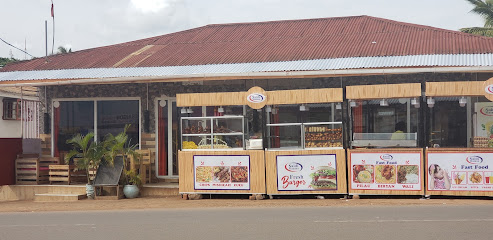
The wallet lounge & club
Experience flavorful grilled dishes and vibrant nightlife at The Wallet Lounge & Club in Kigoma, where local culture meets culinary delight.
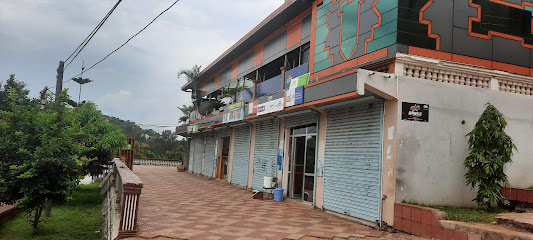
Aqua Lodge Hostel
Discover comfort and local flavors at Aqua Lodge Hostel in Kigoma – your ideal retreat near Lake Tanganyika.
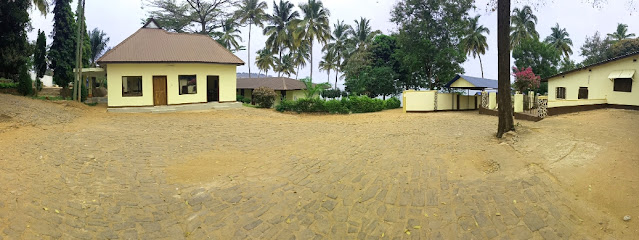
LEADERS LODGE
Experience comfort and local charm at Leaders Lodge in Kigoma, your ideal retreat for exploring Tanzania's stunning western landscapes.
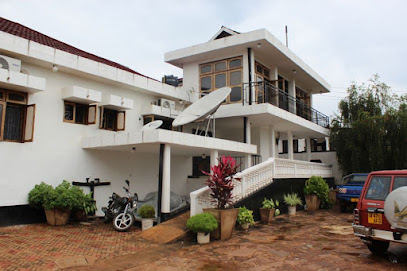
Jakobsen Beach and Guest House
Discover tranquility at Jakobsen Beach and Guest House – your serene escape on the shores of Lake Tanganyika.
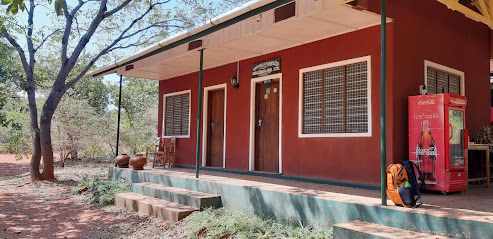
Unique Kitchen
Discover unique flavors and warm hospitality at Unique Kitchen in Kigoma - a culinary treasure waiting to be explored.
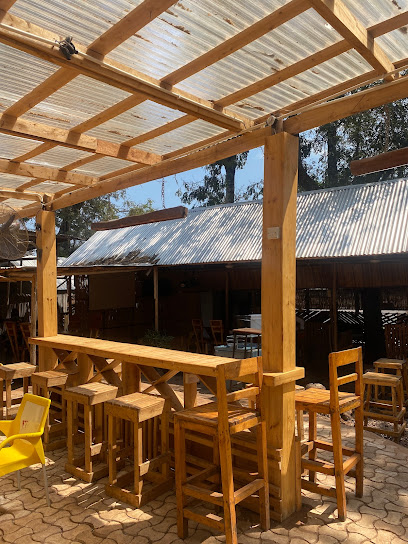
Ally's
Discover authentic Tanzanian flavors at Ally's Restaurant in Kigoma – where every meal tells a story.
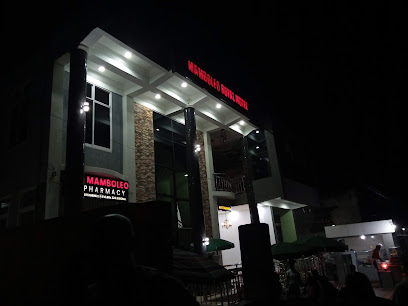
Livingstone Museum
Explore Tanzania's heritage at Livingstone Museum - a gateway to understanding Dr. David Livingstone's journey and local culture.
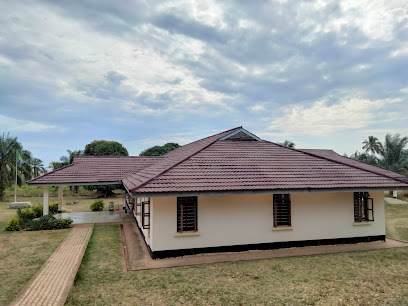
Royal Prince Lodge
Discover tranquility at Royal Prince Lodge in Kigoma - where comfort meets local charm amidst stunning landscapes.
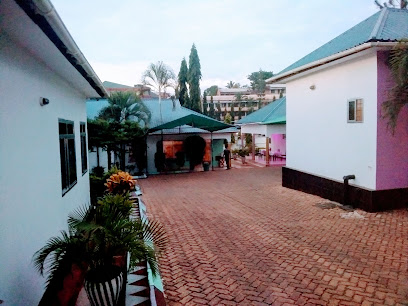
Metro Pub
Discover authentic Tanzanian cuisine at Metro Pub in Kigoma – where flavor meets culture in a welcoming atmosphere.
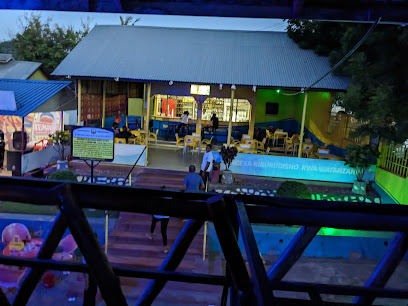
Ze Breeze
Discover Ze Breeze in Kigoma – where refreshing drinks meet vibrant local culture amidst breathtaking landscapes.
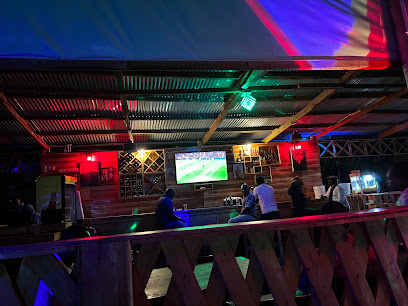
Maweni green view pub
Experience stunning views and vibrant atmosphere at Maweni Green View Pub in Kigoma - where local culture meets relaxation.
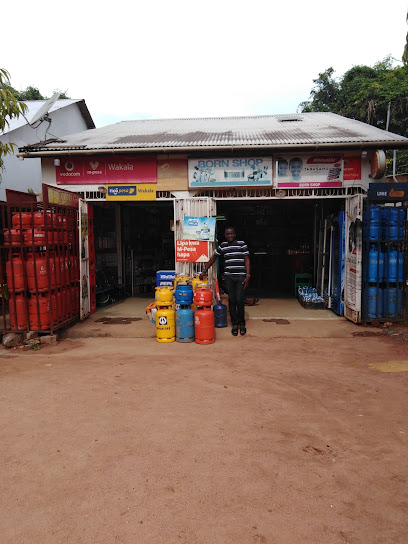
Markets, malls and hidden boutiques
Khalfan Shop
Explore the vibrant Khalfan Shop in Kigoma for a taste of local culture with fresh produce and traditional Tanzanian products.
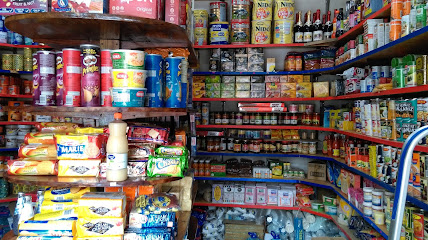
Baraka Shop Kigoma
Discover the vibrant shopping experience at Baraka Shop in Kigoma, where local culture and unique finds await every traveler.
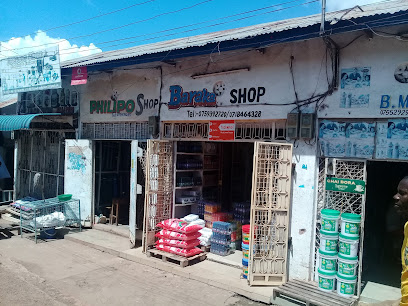
New Stores Ltd (Branch) Azam TV Kigoma
Explore New Stores Ltd in Kigoma for all your electronics needs, featuring a wide range of gadgets and accessories to enhance your travel experience.

Kigoma
Explore Kigoma's vibrant market, where local culture, fresh produce, and exquisite crafts come together on the shores of Lake Tanganyika.
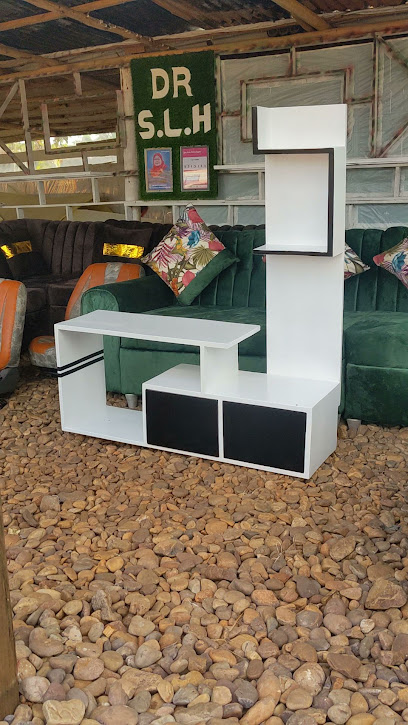
New Stores Ltd (Zahir Kigoma)
Discover a wide selection of electronics and tools at New Stores Ltd, the go-to shopping destination in Kigoma for quality and variety.
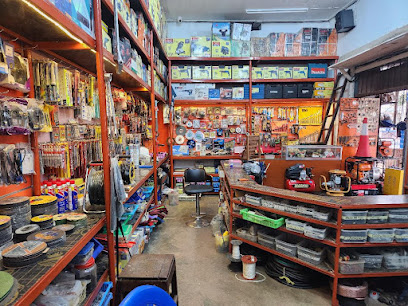
Beatrice Shopping Center
Discover the vibrant Beatrice Shopping Center in Kigoma, Tanzania - your destination for local goods, fresh produce, and unique souvenirs.
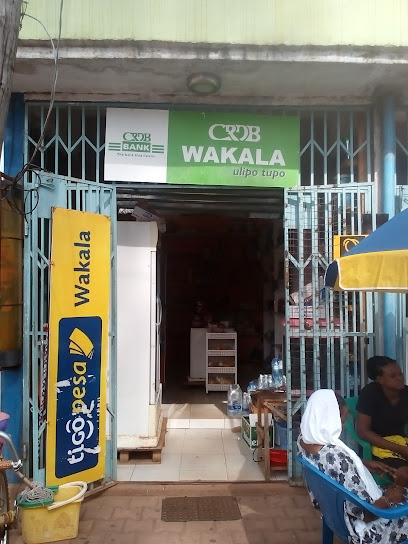
Vunjabei fashion store Kigoma
Explore unique fashion at Vunjabei in Kigoma, where traditional meets contemporary, perfect for tourists seeking authentic Tanzanian style.
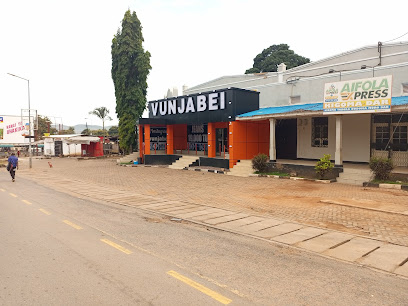
Cadabrah Shop
Discover Cadabrah Shop in Kigoma, where technology meets local culture, providing a range of computer and mobile accessories for every traveler.
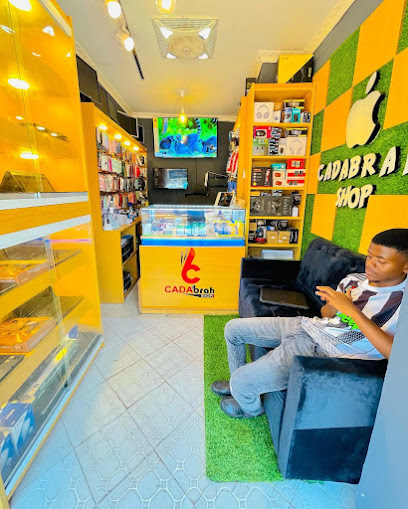
salon
Discover Kigoma's Cutlery Store: Where Artistry Meets Functionality in Kitchenware and Unique Souvenirs.

mukarazi market
Explore Mukarazi Market in Kigoma for an authentic shopping experience filled with local crafts, flavors, and vibrant culture.

AYOA STATIONERY AND GENERAL SUPPLIES
Explore AYOA Stationery and General Supplies in Kigoma for all your stationery and general supply needs while enjoying exceptional service and a welcoming atmosphere.

BRIGHT LIQUOR STORE
Discover the vibrant essence of Tanzanian beverages at Bright Liquor Store, your go-to destination for drinks and snacks in Kigoma.
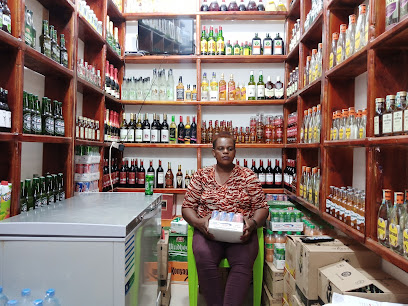
Eliakim shop
Experience the vibrant culture of Tanzania at Eliakim Shop in Kigoma, where local crafts and artisanal products await every tourist.

Usagara Shop
Discover unique local products and authentic Tanzanian culture at Usagara Shop, the heart of Kigoma's shopping scene.

Book World Stationery Kigoma
Discover unique gifts and local crafts at Book World Stationery, a vibrant shopping hub in the heart of Kigoma.
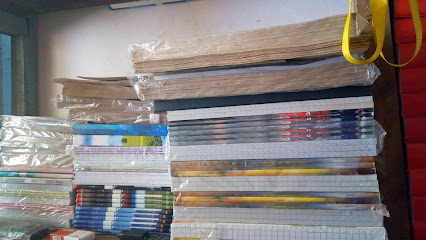
Essential bars & hidden hideouts
The wallet lounge & club
Discover Kigoma's nightlife at The Wallet Lounge & Club, where delicious grilled cuisine meets a vibrant social atmosphere in Tanzania.
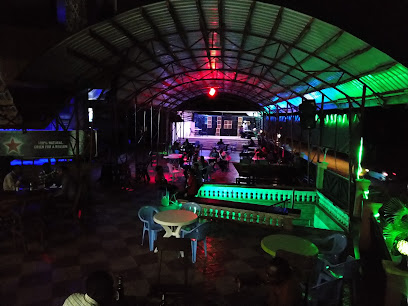
Aqua Lodge Hostel
Experience the charm of Kigoma at Aqua Lodge Hostel, where comfort meets adventure along the shores of Lake Tanganyika.
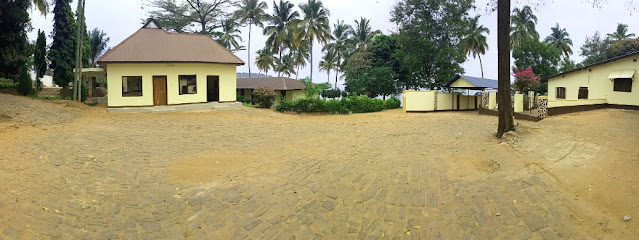
Unique Kitchen
Discover the culinary magic of Unique Kitchen in Kigoma, Tanzania, where local flavors and international cuisine unite in a delightful dining experience.
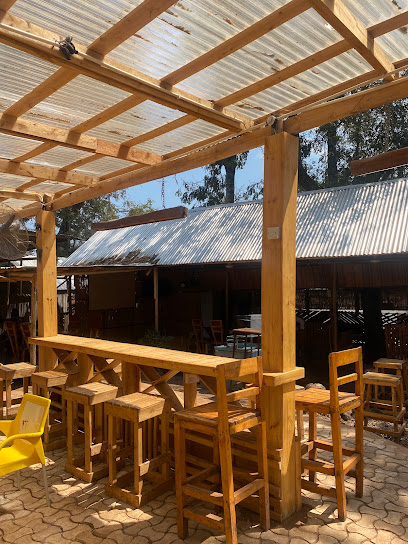
Metro Pub
Metro Pub in Kigoma: A delightful restaurant experience combining local flavors with a welcoming atmosphere for every traveler.
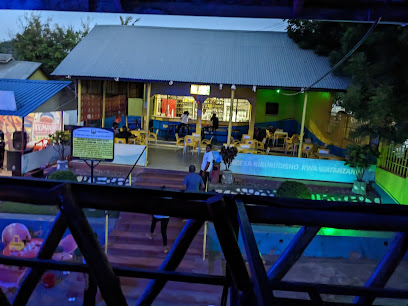
Ze Breeze
Discover the perfect lakeside bar experience at Ze Breeze in Kigoma, where local flavors meet breathtaking views of Lake Tanganyika.
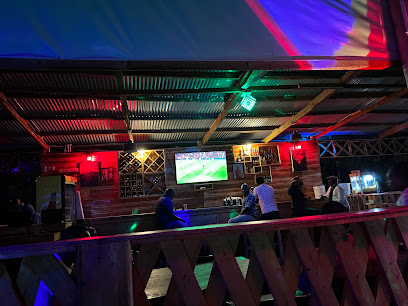
Maweni green view pub
Experience local charm and stunning views at Maweni Green View Pub, where relaxation meets the vibrant culture of Kigoma, Tanzania.
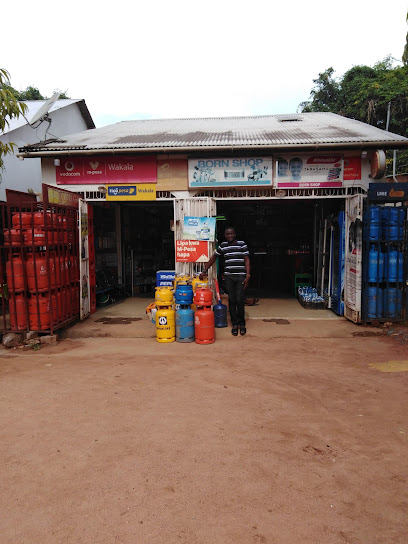
Kidyama beach
Discover the serene beauty and vibrant culture of Kidyama Beach in Kigoma, a perfect destination for sun, sand, and local flavors.
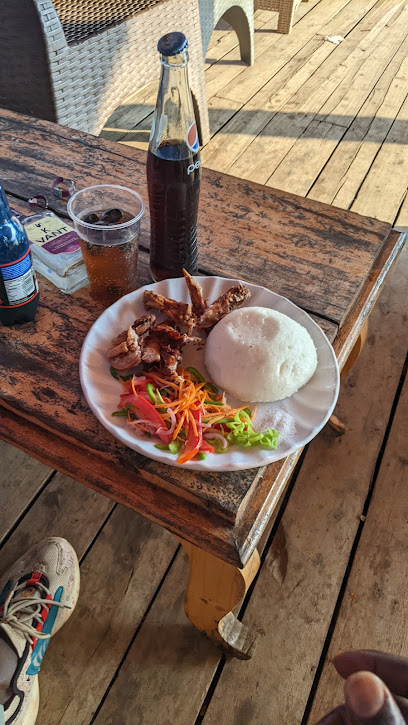
Faith Pub
Experience local culture and vibrant nightlife at Faith Pub in Kigoma, Tanzania, where drinks and friendly vibes await.
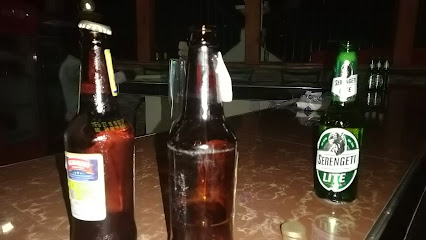
Kigoma Park
Discover tranquility and natural beauty at Kigoma Park, a serene oasis perfect for relaxation and cultural engagement.
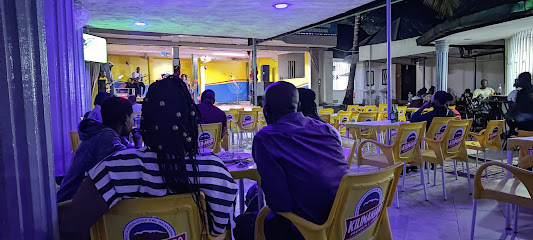
Unique Bar
Discover the vibrant atmosphere and local flavors at Unique Bar in Kigoma, where relaxation meets excitement in a perfect blend.
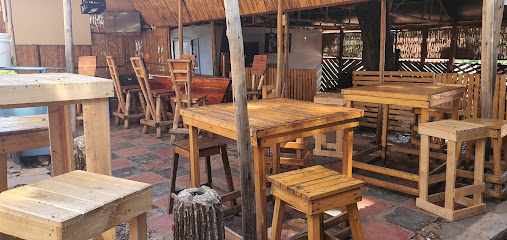
DIANA EXCLUSIVE PUB
Experience the vibrant nightlife and local flavors at Diana Exclusive Pub in Kigoma, the perfect blend of relaxation and entertainment.
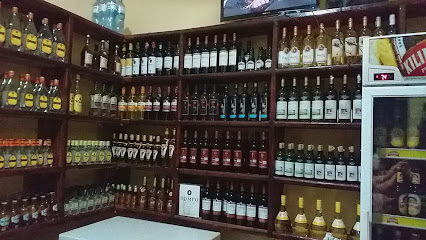
Heat club & lodge
Discover the vibrant nightlife at Heat Club & Lodge in Kigoma, a lively bar offering an array of drinks and entertainment for an unforgettable experience.

Coner Pub
Experience the vibrant local culture at Coner Pub in Mwanga, where refreshing drinks and friendly vibes create an unforgettable atmosphere.
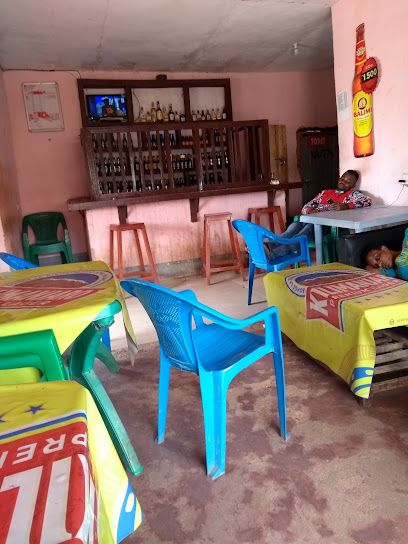
beach
Discover the tranquil beauty of Kigoma Beach, where soft sands meet the crystal-clear waters of Lake Tanganyika, perfect for relaxation and adventure.
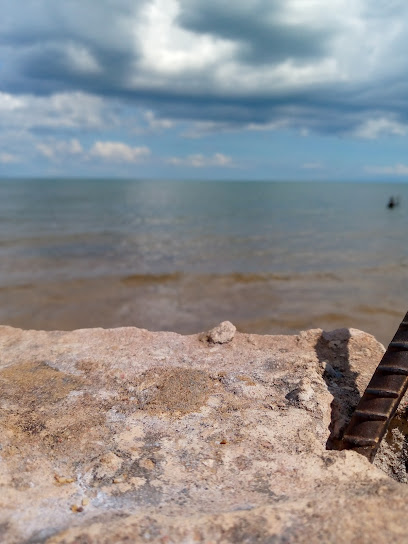
Unique Restaurant
Discover the exquisite flavors of Kigoma at Unique Restaurant, where local and international cuisines come together in a charming setting.
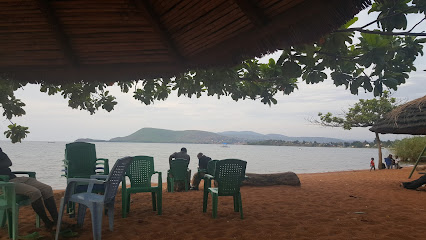
Local Phrases
-
- HelloJambo
[jahm-boh] - GoodbyeKwaheri
[kwah-heh-ree] - YesNdio
[en-dee-oh] - NoHapana
[hah-pah-nah] - Please/You're welcomeTafadhali
[tah-fah-dha-lee] - Thank youAsante
[ah-sahn-teh] - Excuse me/SorrySamahani
[sah-mah-hah-nee] - How are you?Habari yako?
[hah-bah-ree yah-koh] - Fine. And you?Salama. Na wewe?
[sah-lah-mah. nah weh-weh] - Do you speak English?Unazungumza Kiingereza?
[oo-nah-zoon-goom-zah kee-een-geh-reh-zah] - I don't understandSielewi
[see-eh-leh-wee]
- HelloJambo
-
- I'd like to see the menu, pleaseNingependa kuona menyu, tafadhali
[nee-ngeh-pehn-dah kwoh-nah meh-nyoo, tah-fah-dha-lee] - I don't eat meatSili nyama
[see-lee nyah-mah] - Cheers!Mambo!
[mahm-boh] - I would like to pay, pleaseNingependa kulipa, tafadhali
[nee-ngeh-pehn-dah koo-lee-pah, tah-fah-dha-lee]
- I'd like to see the menu, pleaseNingependa kuona menyu, tafadhali
-
- Help!Msaada!
[msah-ah-dah] - Go away!Ondoka!
[ohn-doh-kah] - Call the Police!Piga polisi!
[pee-gah poh-lee-see] - Call a doctor!Piga daktari!
[pee-gah dahk-tah-ree] - I'm lostNimepotea
[nee-meh-poh-teh-ah] - I'm illNinaumwa
[nee-nah-oom-wah]
- Help!Msaada!
-
- I'd like to buy...Ningependa kununua...
[nee-ngeh-pehn-dah koo-noo-noo-ah] - I'm just lookingNatazama tu
[nah-tah-zah-mah too] - How much is it?Bei ni kiasi gani?
[beh-ee nee kee-ah-see gah-nee] - That's too expensiveHilo ni ghali sana
[hee-loh nee gah-lee sah-nah] - Can you lower the price?Unaweza kushusha bei?
[oo-nah-weh-zah koo-shoo-shah beh-ee]
- I'd like to buy...Ningependa kununua...
-
- What time is it?Saa ngapi?
[sah-ah ngah-pee] - It's one o'clockNi saa moja
[nee sah-ah moh-jah] - Half past (10)Saa mbili na nusu
[sah-ah mm-bee-lee nah noo-soo] - MorningAsubuhi
[ah-soo-boo-hee] - AfternoonMchana
[mm-chah-nah] - EveningJioni
[jah-ee-oh-nee] - YesterdayJana
[jah-nah] - TodayLeo
[leh-oh] - TomorrowKesho
[keh-show] - 1Moja
[moh-jah] - 2Mbili
[mm-bee-lee] - 3Tatu
[tah-too] - 4Nne
[nn-neh] - 5Tano
[tah-noh] - 6Sita
[see-tah] - 7Saba
[sah-bah] - 8Nane
[nah-neh] - 9Tisa
[tee-sah] - 10Kumi
[koo-mee]
- What time is it?Saa ngapi?
-
- Where's a/the...?Iko wapi...?
[ee-koh wah-pee] - What's the address?Anwani ni ipi?
[ahn-wah-nee nee ee-pee] - Can you show me (on the map)?Unaweza kunionyesha (kwenye ramani)?
[oo-nah-weh-zah koo-nee-oh-nyeh-shah (kwehn-yeh rah-mah-nee)] - When's the next (bus)?Basi lijalo litakuja lini?
[bah-see lee-jah-loh lee-tah-koo-jah lee-nee] - A ticket (to ....)Tiketi (kwenda ....)
[tee-keh-tee (kwehn-dah ....)]
- Where's a/the...?Iko wapi...?
History of Kigoma
-
Kigoma, located on the eastern shores of Lake Tanganyika, has been a crossroads of cultures for centuries. The region was inhabited by various ethnic groups, including the Ha, Bembe, and Tongwe peoples, who coexisted and traded with each other long before colonial times. Archaeological findings suggest that the area was an important hub for trade and cultural exchange, facilitated by Lake Tanganyika, one of the world's oldest and deepest freshwater lakes.
-
In the 19th century, Kigoma became a significant center for the Arab slave trade. Arab traders from Zanzibar and the Swahili coast used Kigoma as a key transit point for transporting enslaved people from the interior of Africa to the coast, and eventually to the Middle East and beyond. The town's strategic location along Lake Tanganyika made it an ideal spot for these operations.
-
Kigoma's modern history began during the German colonial period in the late 19th and early 20th centuries. The Germans established Kigoma as a crucial administrative and military outpost in their colony of German East Africa. They built infrastructure, including the Central Line railway, which connected Kigoma to the interior of the colony and to the coastal city of Dar es Salaam. This development turned Kigoma into an important logistical and commercial hub.
-
During World War I, Kigoma was the focal point of a lesser-known but dramatic naval battle. The Battle of Lake Tanganyika, fought between German and Allied forces, saw the deployment of ships on the lake. The Allied forces, including British and Belgian troops, aimed to wrest control of the lake from the Germans. The battle was notable for the use of small, fast boats that were transported in pieces overland and reassembled on the lake.
-
After Tanzania gained independence in 1961, Kigoma underwent significant changes under the leadership of Julius Nyerere. Nyerere's policy of Ujamaa, or African socialism, aimed to create self-reliant villages. Kigoma, like many other parts of Tanzania, saw the establishment of Ujamaa villages, which were intended to foster communal living and collective farming. While the policy had mixed results, it left a lasting impact on the social and economic fabric of the region.
-
In contemporary times, Kigoma has emerged as a gateway to some of Tanzania's most breathtaking natural wonders. The town is the main access point for Gombe Stream National Park, famous for its population of wild chimpanzees and the research conducted by primatologist Jane Goodall. Kigoma's rich history, combined with its stunning natural scenery, makes it a unique destination for travelers seeking both cultural and ecological experiences.
Kigoma Essentials
-
Kigoma is situated in western Tanzania along the shores of Lake Tanganyika. The nearest international airport is Julius Nyerere International Airport in Dar es Salaam. From Dar es Salaam, you can take a domestic flight to Kigoma Airport, which is approximately a two-hour journey. Alternatively, you can travel by train from Dar es Salaam to Kigoma, a scenic but lengthy journey that takes about two days. Buses are also available, though they are less comfortable and take around 24-36 hours depending on the route and conditions.
-
Within Kigoma, transportation options include taxis, boda-bodas (motorcycle taxis), and daladalas (minibuses). Taxis are readily available and can be hailed on the street or booked through a local service. Boda-bodas offer a quicker but less safe option, especially for short distances. Daladalas are the most economical mode of transport and connect various parts of the town and nearby villages. For more comfort and flexibility, renting a car is also an option; however, be prepared for varying road conditions.
-
The official currency in Tanzania is the Tanzanian Shilling (TZS). While credit cards are accepted in some hotels, restaurants, and larger stores, cash is predominantly used, especially in smaller establishments and markets. ATMs are available in Kigoma, but it is advisable to carry sufficient cash, particularly when venturing to more remote areas. Note that ATMs may occasionally be out of order or run out of cash, so plan accordingly.
-
Kigoma is generally safe for tourists, but it is essential to take standard precautions. Avoid walking alone at night, and be cautious in crowded places to prevent pickpocketing. Some areas, such as the Kigoma-Ujiji border and isolated beaches, have higher crime rates, so it is best to visit these areas in groups or with a local guide. Always keep your belongings secure and avoid displaying valuables openly.
-
In case of emergency, dial 112 for immediate assistance. Local police stations and medical facilities are available in Kigoma. It is highly recommended to have travel insurance that covers medical emergencies. For minor health issues, pharmacies are accessible in the town where you can purchase over-the-counter medications. The Kigoma Regional Hospital provides emergency services and is the primary healthcare facility in the area.
-
Fashion: Do dress modestly, especially when visiting religious sites or rural areas. Avoid wearing revealing clothing. Religion: Do respect local customs and traditions. Always show respect when visiting places of worship. Public Transport: Do be respectful and courteous on public transport. Don't eat or drink on public transport. Greetings: Do greet people with a handshake. It is customary to ask about one's health and family before getting to business. Eating & Drinking: Do try local dishes and be open to new culinary experiences. Don't refuse food or drink offered by your host, as it is considered impolite.
-
To experience Kigoma like a local, visit the local markets such as Mwanga Market, where you can buy fresh produce and local crafts. Engage with locals, who are often friendly and eager to share stories about their culture and history. Don't miss a visit to Ujiji, where you can see the historic site of the famous 'Dr. Livingstone, I presume?' meeting. For a unique experience, take a boat trip on Lake Tanganyika to explore nearby islands and enjoy the stunning sunset views.
Nearby Cities to Kigoma
-
Things To Do in Rumonge
-
Things To Do in Bururi
-
Things To Do in Gitega
-
Things To Do in Bujumbura
-
Things To Do in Muramvya
-
Things To Do in Kayanza
-
Things To Do in Ngozi
-
Things To Do in Cibitoke
-
Things To Do in Muyinga
-
Things To Do in Butare
-
Things To Do in Kirundo
-
Things To Do in Karongi
-
Things To Do in Nyamata
-
Things To Do in Muhanga
-
Things To Do in Kibuye








